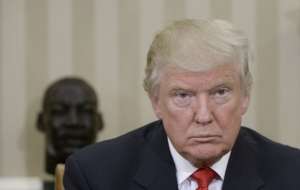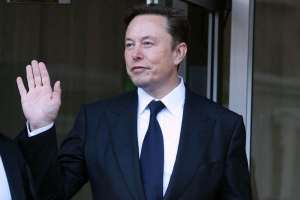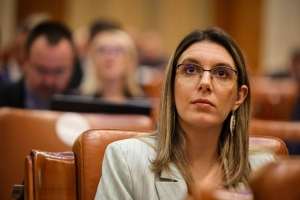The National Institute of Magistrates organized on April 10th, 2017, in its continuous training program, a new seminar with the participation of representatives of the National Bank of Romania.
Under the "harmless" title of "General aspects of financial and banking law", the seminar has included several topics of great interest, not just for the participating judges and prosecutors, but also for the public, whose financial ignorance is often mentioned in the press (author's note: the full program can be seen at www.inm-lex.ro, in the "Continuous training" section).
Under these circumstances, why didn't the NBR publish on its website the presentations of the seminar, especially when the topics discussed have concerned the manner in which money is created and destroyed, what loan applicants should know, the effects of overleverage, what the NBR did to prevent the crisis at the end of the last decade or what causes and consequences of quantitative easing policies are?
From the NBR, the attendees included Valentin Lazea, chief-economist of the institution, as trainer, Alexandru Păunescu, the head of the Legal Department of the NBR (moderator) and Bogdan Stănescu, strategy consultant at the Chancery of the NBR (moderator).
The first item on the agenda was the presentation called "What is money: how it is created and how it is destroyed. The role of trust in a monetary economy", which also included the role of commercial banks.
After money was defined, as "special commodities that have a triple role - a means of exchange, a means of preserving value and accounting unit", the NBR lecturer stressed that "far more important than the three aforementioned roles is the role of money as a guarantee of trust" and said that "nowadays, with negative interest rates, the function of money of preserving value is being increasingly questioned".
But if the monetary symbols that we call money no longer fulfill an essential requirement, that of storing and preserving value, why do we still call it money? And how much longer can we count on these "guarantees of trust"?
The representative of the NBR then said that, up until 1971 money was backed by a rare metal (gold or silver), but subsequently "money was being created out of nothing, often in electronic, dematerialized form", but "creation out of nothing does not mean creation in exchange for nothing", because "the money is granted in exchange for a collateral", such as government bonds, municipal bonds, corporate bonds or other movable or immovable collaterals.
Unfortunately, the lecturer of the NBR did not mention that the dropping of the gold standard has represented the switch from money as commodity to money as debt, which allowed the explosive growth of lending in the last four decades, by eliminating a mechanism that was fundamental for the adjustment of economic activity.
Speaking about interest, the representative of the NBR said that "it is a concept with both an economic and moral meaning" and explained the economic meaning as "in an inflationary economy (as are all the economies after 1971), after a number of years, money will be worth less than that same amount is worth today", and the moral meaning is "the sanction of the person who is impatient (wants to consume today his future income) and the rewarding of those who are patient (reduces his consumption today for a greater consumption in the future)".
However, the economic nature of interest is another. The interest reflects the time preference of consumers and of those who save. The more a resource owner prefers a future with a low consumption, the more the interest will be lower, but it will depend, of course, on the inflationary expectations. Thus, the representative of the NBR is confused when it comes to the economic and moral meaning of the interest rate, a confusion which is also sent to the magistrates.
Going back to the nature of money, that has been illustrated the best by J.P. Morgan, in a hearing before the Banking Committee of the Chamber of Representatives, of December 1912. Morgan stressed the fundamental difference between money and credit when he said that "gold alone represents money, and nothing else".
As for lending, J.P. Morgan was asked whether the foundation of commercial credit was represented by monetary or real estate collateral. "No sir, the first thing is character", the most influential banker of that time responded.
"A man I don't trust won't get any money from me, even if he had every collateral in all of Christendom", J.P. Morgan continued.
Unfortunately, money today isn't a "special commodity" anymore, just a symbol of debt. "Nowadays money gets created by two entities: central banks, and commercial banks respectively, in exchange for some deeds that are assumed to be valuable", the presentation of the NBR further states, where the notion of "valuable" is "deliberately placed in quotes".
What are magistrates taught about how the creation of money works? "Central banks issue "hard money' (M0, the money base), and commercial banks, in the process of multiplying credit, issue broad money (M2, M3)", the NBR representative states.
After saying that "the money injected by the central at worst produces inflation, and at best nothing", the official of the NBR said that "in exchange for existing securities, the central bank grants liquidity to the commercial banks". The new money will only be created when commercial banks grant loans to the private and governmental sector, and its volume can be multiplied 12.5 times in the case of a minimum required reserve rate of 8%. The reverse process of money destruction happens when, upon maturity of the loan, "the securities are returned to the issuer, and he returns the money paid, which ends up being sterilized by the central bank".
Subsequently, in the presentation about the role of commercial banks, it is stated that "the main role of commercial banks is to connect the entities that save (usually households) and the entities that borrow (usually companies)", in other words they promote the banking theory of financial intermediation.
In the context where education, not just financial, involves the development of critical thinking, the representatives of the NBR sent in to "enlighten" the magistrates have failed lamentably in that regard, because they have omitted presenting the other dominant banking theories in various periods of the last century.
In the article "The global crisis isn't going to end until the creation of money from nothing is abandoned" (BURSA, 23.11.2016) I have presented the results of an empirical study by professor Richard Werner, of Southampton Business School of the University of Southampton of Great Britain, which states that "banks individually create money out of nothing".
Professor Werner put to the test of reality the three banking theories accepted at various stages of the last century - the creation of money out of nothing, financial intermediation and the theory of fractional reserve lending - and has come to the conclusion that the latter two don't pass the test, after he took out a small loan from a German bank and monitored the entire lending process.
His article, "Can individual banks create money out of nothing? Theories and empirical evidence", continues to be ranked among the top most downloaded studies from the website of the International Review of Financial Analysis (IRFA), along with two others of his works, "A lost century in economics: Three banking theories and the conclusive evidence" and "How do banks create money and why can't other companies do the same? An explanation for the coexistence of lending and of attracting deposits".
Following his experiment, Richard Werner comes to the conclusion that only the theory of money being created from nothing is validated by reality, while "the theories of financial intermediation and of fractional reserve lending had no success at all".
Since the NBR actually mentioned morality in its presentation before magistrates, when it comes to interest, how can the morality of charging interest on money made out of nothing be justified when being asked as payment for some money created out of nothing?
Professor Richard Wagner isn't, however, the only supporter of the theory of creating money out of thin air through the lending process.
In the quarterly bulletin of Q1 2014, the Bank of England included two articles concerning the creation of money out of nothing in present day economies. The second, "The creation of money in modern economy", describes in detail the manner in which banks create, out of nothing, the biggest portion of money in the economy, in the form of deposits derived from the granting of loans. Meaning banks aren't financial intermediaries, but "creators of money", and deposits aren't "sources" of the multiplication of credit through fractional reserve lending.
That is where it's also stated that "the theory of the monetary multiplier doesn't represent an accurate description of the manner in which money is created", as "the minimum reserves of the central bank do not represent a restriction on lending".
"The minimum reserves do not represent a hard restriction placed on lending and the central bank doesn't set the value of the available reserves either", the study of the Bank of England states, and "the relationship between deposits and loans, and between reserves and loans, operates in a manner opposite to the way it is described in the manuals".
The two studies in the quarterly bulletin of the Bank of England are attached to the articles "The understanding of the nature of money is more important than the understanding of financial products" (part I in BURSA, 28.04.2014, and part II in BURSA, 06.05.2014).
The conclusions are also published in the book "The End of Alchemy: Money, Banking and the Future of the Global Economy", published by Mervyn King after the expiration of his term as governor of the Bank of England, a position he held between 2003-2013.
Under these circumstances, and given the manner in which the process of money creation in present-day economies has been described to the magistrates, a legitimate question arises: does the NBR know how money is created in a modern economy?
Of course it does, but unfortunately, it has chosen the simplistic path of propaganda instead of education. In order to pursue the spirit of justice, magistrates are left with no option but to seek other sources of information for their continuous professional training and financial education.
Note: The author thanks the PARAKLETOS association for making available the materials presented in the seminar organized for the INM.

























































